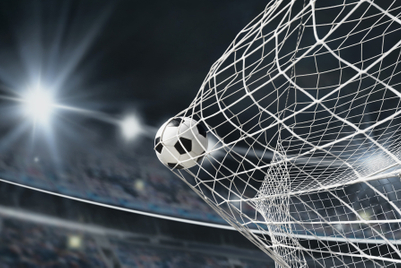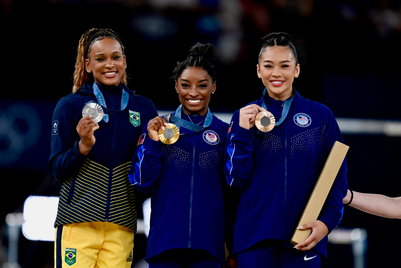
China's national football team may not have qualified for this year's World Cup, but Chinese brands are nevertheless still hoping to make their presence known as the biggest-spending sponsors of the event.
Four of this year's World Cup sponsors are from China—Wanda Group, Vivo, Hisense and Mengniu—and collectively they have spent an eye-watering $1.395bn for top billing at the tournament, which runs from November 20 till December 18, even more than the $1.1bn spent by American brands such as McDonalds, Coca-Cola and Budweiser, according to GlobalData, a London-based data analytics and consulting company.
But will it be worth it? Even before a single game has been played it's already the most controversial World Cup in history, with Qatar dogged by scandals ever since it was announced as host in 2010 over its suitability to hold the event.
Allegations of bribery around buying votes to win hosting rights—which Qatar officials have denied—as well as years of serious migrant labour and human rights abuses continue to overshadow the Middle East's first World Cup. For brands sponsoring the event it looks set to be a precarious game of risk vs reward, but one that Chinese brands seem happy to play.
"I believe what Chinese brands are seeking from the World Cup sponsorship are pretty much similar to their international peers," says Shoto Zhu, CEO of SponsorForce, a China-based sponsorship marketplace. "They are looking to increase presence, activating it as a premium way of hospitality for their clients, and spreading good will from the brands to their global audience."
"Some of them, like Wanda and Mengniu who don’t have too many international business operations are more likely seeing this as great way to enhance their position in the home market though," adds Zhu.
Global reach
More than half of the world watched the 2018 World Cup—a record 3.572 billion people—and so the size of the opportunity in terms of reach and exposure for brands is unbeatable.
"It is one of the biggest chances for global reach at scale, making it particularly appealing for Chinese enterprises trying to expand outside of China and boost their brand equity," says Martin Roll, business & brand strategist, and author of global bestseller Asian Brand Strategy.
Among the Fifa Partners, there is one Chinese brand, Wanda, with global rights to all FIFA events and three Chinese FIFA World Cup sponsors with global rights to the FIFA World Cup only—Hisense, Mengniu and Vivo.

"For Vivo, Wanda and Hisense who have overseas business, the partnerships with FIFA World Cup facilitate them with a window to be connected to a large group of audience across continents as well as differentiating themselves from domestic and international rivals," says Echo Li, managing director of Greater China and senior vice president of global partnerships at international sports business and marketing agency Sportfive.
"For Mengniu, whose business focus is China and regional markets only, partnering up with Fifa World Cup could endorse them with a market leading position in China in view of their rivals in the dairy categories."
Certainly, whether it's trying to reach a global audience or impress at home, there's no denying the Fifa World Cup is the crown jewel of sporting events with only market leaders having the privilege to become a sponsor.
"This perception is helpful for Chinese brands who strive to become international," adds Li. "Strengthening their brand image and leveraging associations from cohort partners like Coca-Cola, Adidas and Hyundai KIA."
Potential to backfire
While it's clear the game strategy for Chinese brands is to reach a global audience, this may well backfire given global audiences are unlikely to view sponsors of this World Cup favourably amid human rights controversies and concerns that have dogged Qatar.
Earlier this year, Human Rights Watch, Amnesty International and FairSquare wrote to Fifa's 14 corporate partners and World Cup sponsors urging them to provide compensation for the workers who died or sustained serious injuries in Qatar. Some estimates say as many as 6,500 workers have died on World Cup construction sites in Qatar.

The #PayUpFIFA campaign was subsequently launched by Human Rights Watch, and in a statement published in September, the rights group said that four major sponsors—Budweiser, Adidas, Coca-Cola and McDonald’s—had expressed support for the proposed compensation.
However, none of the four Chinese sponsors have backed calls for a compensation fund for migrant workers.
"The Chinese government is always about non-interference in other countries' affairs," said Rowan Simons, chair of China Club Football FC, in an interview with Middle East Eye. "So they would say it's nothing to do with them at all. And consumers in China probably wouldn't be pushing back on that."
"In their eyes, the national pride of having sponsors [of the World Cup] probably outweighs the association with possible human rights abuses."
While Chinese brands sponsoring a prestigious sporting event like the World Cup may play well to domestic audiences who are less concerned or in the dark about human rights abuses, it could be a different story outside of China.
"Worldwide customers are critical and have well-established brand preferences, requiring compelling reasons and advantages for them to switch brands," says Roll. "The ‘Made in China’ perception may also provide challenges for Chinese brands, who must work hard to overcome any mistrust and opposition."
Of course, for some of the bigger sponsorship deals, this isn't just about one World Cup tournament. In the case of Chinese sponsor Wanda, the deal is for future events too.
"For Chinese brands, the two biggest value deals were signed pre-Russia 2018 (Vivo and Wanda) which was part of an overall strategy for China and Chinese brands to develop relationships with significant sporting properties (World Cup, Olympics) as a means of sportswashing China’s reputation with regards to human rights," says Conrad Wiacek, head of sport analysis at GlobalData.
"Since Covid, this strategy has noticeably changed with much less investment in sporting properties outside of China. With the exception of Wanda, who are contracted to 2030, all the other deals expire after this World Cup so it will be interesting to see if these will be renewed."
Will football take centre stage?
While controversy has overshadowed the Qatar World Cup ever since it was announced as host in 2010, Fifa, fans and brands may all be hoping that once the tournament kicks off, the focus will return to football itself.
"Brands are taking a risk vs reward approach and will be hoping that, as we have seen in the past, the power of the spectacle overshadows the controversies once the action gets underway," says Amar Singh, head of content and communications for MKTG Sports + Entertainment.
Anthea Chee, senior vice president, corporate partnerships Southeast Asia for Sportfive, says once the competition kicks off, the spotlight will be on the sport itself with the games taking centre stage.
"It should be business as usual for brands activating at the World Cup, but I would expect brands to take a cautious approach and steer away from using the host country name and limit their on-ground activations in Qatar," says Chee. "Instead, brands will focus on the sport and its fans via digital channels, bringing experiences and opportunity to engage with the tournament directly through the various platforms rather than to actively bring fans to the venues."

And while the risks for brands at this year's World Cup may be greater than usual, regardless of where it is being played, the World Cup still has a massive global footprint with an audience of billions. So from a brand building point of view, the exposure the event provides is still significant.
"While reputational damage may occur, especially in the short term, given that it is in the middle of the season means that once football resumes in late December, the brand damage may be limited as people will likely ‘move on’ to the resumption of the season," says Wiacek, head of sport analysis at GlobalData.
And given this World Cup will be one of the first major sporting events since the start of the Covid-19 pandemic to not have limitations on crowd numbers, all eight stadiums will be allowed to fill to their maximum capacities, which could work to its advantage.
"From our observations providing creative activation service to Hisense, Coca Cola and Budweiser for this year’s FIFA World Cup, brands are tuning into the similar concepts of celebration, bringing people together, joyfulness and togetherness both online and offline; a direct reflection of a post-Covid mindset and vibes that a global audience shares," says Sportfive's Li.
Brand strategist Martin Roll agrees that the globe needs some happy events, and the World Cup will unite countries and people together through sports.
"Without question, the World Cup is incredibly appealing, and once the games begin, marketing considerations will be intensified as the World Cup demonstrates its worldwide reach for businesses as millions of captive consumers tune in," says Roll.
"When the show is on, the world will pause its differences and nuances for a while, and people will come together at scale – virtually and in person. Brands will benefit immensely from that."




.jpg&h=334&w=500&q=100&v=20250320&c=1)
.jpg&h=334&w=500&q=100&v=20250320&c=1)
.jpg&h=334&w=500&q=100&v=20250320&c=1)
.jpg&h=334&w=500&q=100&v=20250320&c=1)
.jpg&h=334&w=500&q=100&v=20250320&c=1)







.jpg&h=268&w=401&q=100&v=20250320&c=1)
.png&h=268&w=401&q=100&v=20250320&c=1)
.jpg&h=268&w=401&q=100&v=20250320&c=1)
